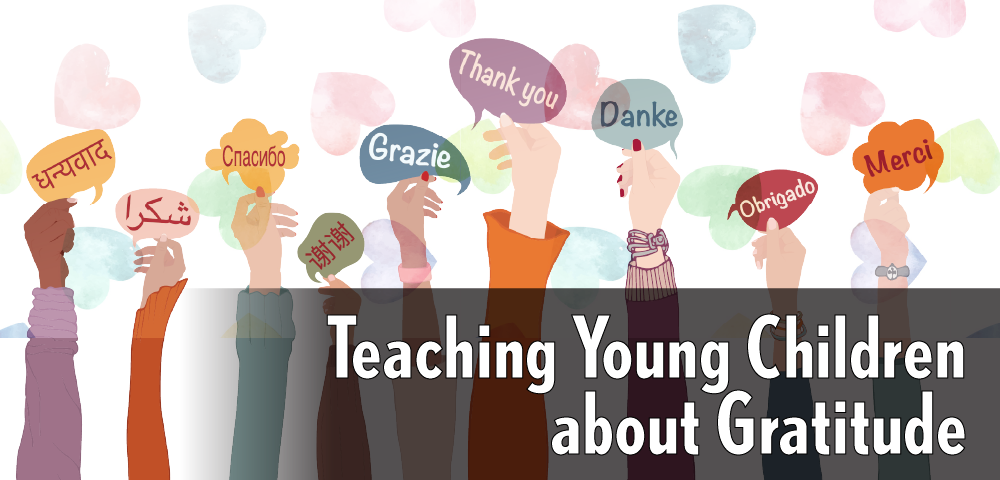
By Charlotte Frank, FCPL Early Literacy Assistant
Teaching children about gratitude should be an ongoing practice, not something that happens with the changing of the seasons. When you instill gratitude at a young age, children grow up with a sense of appreciation for the things that they have, and this makes for happier teens and adults. It is also shown that grateful children grow up to be more optimistic and satisfied with their lives, according to Psychology Today.
Like many things, children first learn about gratitude from their caregivers. They often look to the adults in their lives as role models and they emulate their responses and actions. So, the first step you can take to teach gratitude in your home is to be a good gratitude steward and show appreciation to those around you. Remember, children are very observant, and they notice what caregivers say and do - especially when it comes to others.
Another way you can introduce gratitude to your young ones is through positive reinforcement. All children want to be appreciated and valued. When a child performs an act of kindness, follow it up with encouraging words and positive actions so they understand that it makes people feel good when they help them. In turn, they will recognize that they should do the same.
For a more structured approach, try establishing a gratitude ritual. Regularly schedule a time, like during a meal or before bedtime, to share and listen to what your family members are grateful for. Take it even further by using the weekend to exchange notes or make drawings expressing gratitude to the people in your life.
It’s also important to teach children how to show gratitude and react positively when problems arise. Teach them that while bad things happen to everyone, we can always find something good in every situation. Problem-solve together about what those positives might be and be conscious about when the positive brainstorming takes place. Just like adults, kids grieve in different ways, so it might not be the best time to find a silver lining the minute after a negative situation occurs.

